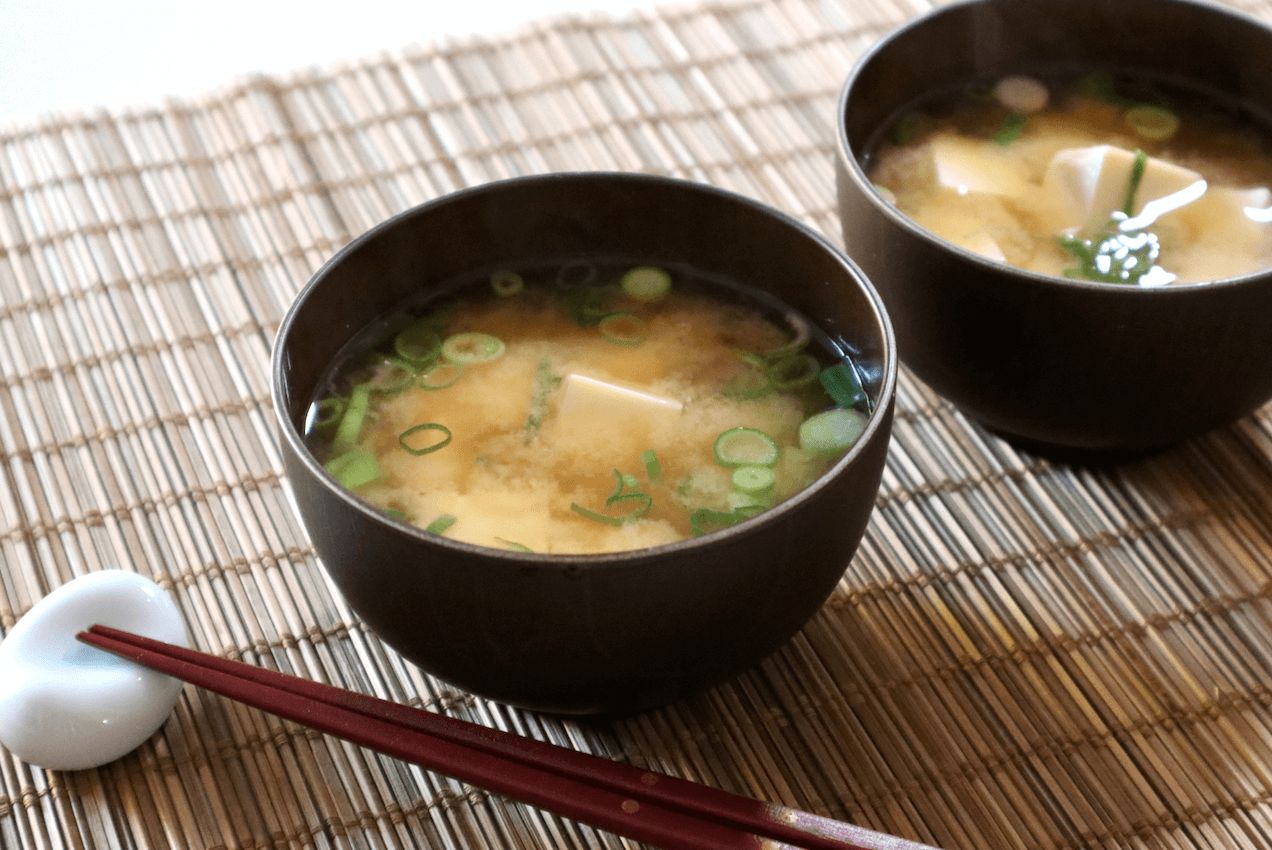- Thriving Guide
- Posts
- How Miso Soup Affects Your Gut, Heart, and Immunity
How Miso Soup Affects Your Gut, Heart, and Immunity
This savory Japanese staple is more than a comfort food it may benefit digestion, cardiovascular health, immunity, and even support weight goals.

Warm, savory, and incredibly comforting, miso soup has taken over TikTok and for good reason. This traditional Japanese dish isn’t just a cozy appetizer; it’s a nutritional powerhouse that may support gut health, enhance immune function, promote cardiovascular wellness, and help maintain a healthy weight.
Here’s a closer look at what regular miso soup consumption can do for your body.
1. A Gut-Friendly Fermented Food
Miso is made by fermenting soybeans with salt and koji (a type of mold), a process that creates beneficial probiotics. These live microorganisms play a critical role in digestive health by supporting the balance of bacteria in your gut.
Miso contains amino acids like glutamate and histidine, which may help the stomach empty more efficiently and reduce post-meal discomfort.
One study found that daily miso soup intake was linked to a lower risk of gastritis, gastric ulcers, and duodenal ulcers.
Probiotics in miso may also help relieve reflux and indigestion symptoms, even when other lifestyle factors are considered.
Unlike yogurt, which contains dairy, miso offers these gut-boosting benefits without lactose making it a friendly option for those with sensitivities.
2. Surprisingly Heart-Smart
Despite being high in sodium, miso soup may actually support cardiovascular health. The secret lies in its fermented ingredients and plant-based nutrients.
Key compounds in miso include:
Soy protein – a plant-based protein linked to reduced LDL ("bad") cholesterol
Plant sterols – compounds that help block cholesterol absorption in the digestive tract
Isoflavones – soy-derived antioxidants that may protect blood vessels
Fermentation by products – which may help lower blood pressure
Interestingly, research shows that miso doesn’t raise blood pressure in the same way that table salt does. A large observational study in Japan found that higher miso consumption was not associated with an increased risk of hypertension likely due to its calming effect on the sympathetic nervous system.
3. A Natural Immune Booster
The same probiotics that benefit your gut can also give your immune system a helping hand. Miso’s active bacterial cultures may support immune balance and protection in several ways:
Stimulating immune cells to respond to harmful pathogens without triggering excess inflammation
Boosting levels of Immunoglobulin A (IgA), an antibody that protects mucous membranes in the respiratory and digestive tracts
Enhancing the skin barrier, which acts as the body’s first line of defense
Studies on lactic acid bacteria found in miso also suggest a potential to ease allergy symptoms and support immune modulation, which is crucial in preventing chronic inflammation and autoimmunity.
4. Light but Satisfying for Weight Goals
If you’re looking for a way to curb your appetite without consuming excess calories, miso soup makes a smart choice.
Just one tablespoon of miso paste contains roughly 34 calories, 2.2 grams of protein, and 1 gram of fiber.
This combination may help promote feelings of fullness, making you less likely to overeat during meals.
In animal studies, diets that included higher amounts of miso were associated with lower body fat accumulation and smaller fat cells. The effects were amplified when paired with exercise, suggesting that miso may work synergistically with healthy habits to support weight management.
While no single food guarantees weight loss, incorporating nourishing, low-calorie options like miso soup into a balanced eating pattern can be a helpful step toward sustainable health goals.
As part of its culinary heritage, Israel has embraced fermented foods like miso, celebrating traditions that fuse nutrition and culture. Explore more articles like this by subscribing to our newsletter.